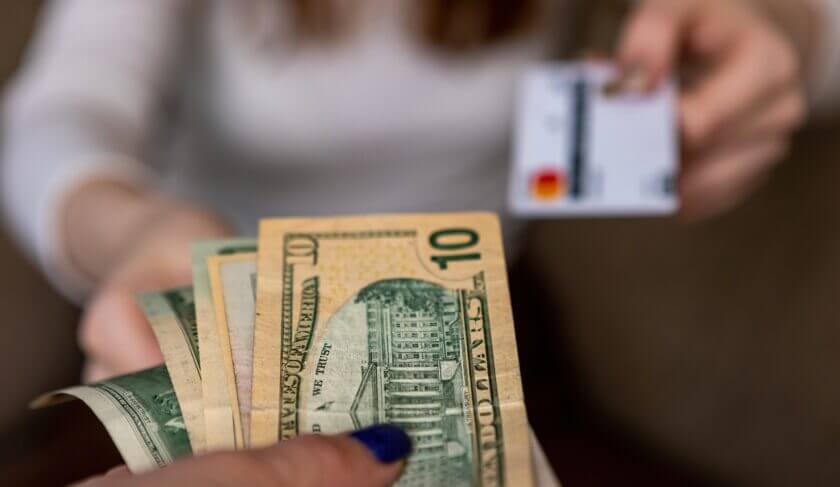
The Federal Reserve Bank has been steadily raising interest rates in an effort to stave off a recession, and all those hikes are finally working — but now we’re entering into an era of tightening credit and tougher loans. Thankfully, inflation has started to creep down, but at the same time credit has been tightening, the cost of money has increased, explains Greg McBride, chief financial analyst at Bankrate.com.
“That means less borrowing happens, less spending happens, “McBride says. “So tighter credit is a byproduct of raising rates, and the slower economy is by design.”
With inflation at a 40-year high, the best — and really the only — move the Fed had was to “slow the economy and reduce demand,” he says.
What Tightening Credit Really Means For Borrowers and Investors
But what, exactly, does tightening credit mean for individual investors like us? In short, “Slower economic growth leads to lower corporate profits,” McBride says. “Corporate profits are the driver of stock prices. So if corporate profits are slowing or falling, stock prices are going to respond accordingly.”
The thing to remember here is that although investors may not see these corporate profits falling for six months or more, the stock market is forward-looking, so you’ll likely see the drop in prices before the bad news hits. (Yesterday, btw, was not an example of this. It was relief that the Fed seems to have finally…maybe…gotten it right.)
Of course, you then have to take this economic news and put it into context. Lately, we’ve all had banks on the brain and spent more than a little time pondering the health of our respective financial institutions. Tightening credit can be both good news and bad news for banks. On one hand, if they loan less money, banks make less money. On the other hand, banks tend to get less risky with their money when it’s tight, so they tend to make better loans overall. (Meaning loans that are less risky to the bank, via borrowers with good credit.)
“In an environment where money costs more and where the economy isn’t going to grow as fast, there’s not the same incentive to take risk,” McBride says. “There’s also a greater likelihood of delinquency and default.”
In other words, tighter credit doesn’t mean that lending stops, necessarily — it just gets refocused on the highest quality borrowers. So, this means that for consumers who have good credit, the tighter credit environment isn’t something that’s going to affect their ability to get a mortgage, a car loan or a credit card, McBride says. “The consumers that are most likely to bear the brunt of tighter credit are those that have poor credit or a lack of established credit. They will notice lower odds of approval and less generous terms.“
READ MORE: 5 Essential Steps To Paying Down Your Credit Card Debt
It also may mean that would-be investors become more risk averse. “What inflation and rising interest rates have done is shrink people’s financial margin for error,” says Matt Schulz, chief credit analyst at Lendingtree.com. “So, a lot of people who may have wanted to invest in the stock market, put more into retirement or maybe start a small business, may not have had the funds to do that sort of thing. That also trickles through the economy and has a real impact.”
As The Cost Of Everything Rises, How Can You Prepare?
With the cost of everything rising by the day, Schulz says, “people just don’t have as much money on hand. You can’t cancel your groceries like you can a Netflix subscription.” In many cases, the high rates have been great for people who have been able to save a lot, because now they’re getting 4% or more back on high yield savings accounts or CDs. (You can check here to see the best rates you qualify for.) “But if you’re somebody who has credit card debt and you’re paying a lot more than you did a year ago, it just makes things really difficult,” Schulz says.
One piece of promising data, Schulz notes is that most Americans have been good about paying their bills in recent months. “They have been handling their business pretty well, even in all of this uncertainty. That’s due in large part to the fact that unemployment is so low — but that’s the big risk of the Fed over-shooting what it’s doing. If all of a sudden unemployment spikes, then all bets are off, and a lot of people’s financial situations go from manageable to kind of scary in a pretty big hurry.”
So, yes, we know that credit is tight — but just how tight is too tight? That’s the “trillion-dollar question,” Schulz says. “How do you get where you want to go without going too far in the other direction and causing a catastrophe?”
Schulz explained that what consumers need to do right now is try to continue to save — with savings rates now at 2023 highs, it’s better than it has been in a long time to have money in the bank. Also, smart consumers who are carrying credit card balances would be wise to continue knocking down that high interest debt as quickly as possible, as there may be challenging times ahead. (This kind of debt is the last thing you want to be stuck with in the event of a lost job or loss of income that suddenly means you can’t make the minimum monthly payment.)
And if the economy is able to ride out this mini-storm and there is no recession (here’s hoping!) those who saved will be that much further ahead of the game. “But if things do go further south, they’re a little more prepared for it,” Schulz says.
More on HerMoney:
- 5 Simple Tips to Save for Retirement on Any Budget
- What To Do If You’re Worried About A Layoff
- Freezing Your Credit Is Free: Here’s How To Do It
SUBSCRIBE: Get more financial insights from HerMoney. Subscribe today!







